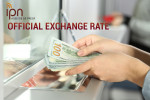Companies informed about negotiations on free trade agreement
“We are trying to test the reaction of businesses to the Government's agenda concerning the negotiations on the deep and comprehensive free trade agreement with the EU. We want to inform the companies and involve them in partnerships within this agreement,” Deputy Minister of Economy Octavian Calmac, deputy chief negotiator of the Association Agreement, said in the opening of an information seminar organized by the Chamber of Trade and Industry, Info-Prim Neo reports.
The official said it is too early to enumerate the sectors that are more exposed to risks as the negotiations will open next year. But one of these sectors could be the textile industry. The companies working in this sector have established cooperation relations with EU partners, but only in making goods from the raw material of Western partners. They should be able to launch their own products on the EU market and should employ modern marketing technology.
Agriculture is another vulnerable sector. Though Moldova enjoys competitive advantages in sugar and canning industries and other fields, they are not eligible for the European market because the certification system does not meet the European standards.
“A new mission of the European Commission is expected to come to Moldova by the end of this year. Many of the recommendations made earlier were fulfilled by the Ministry of Agriculture and Food Industry and its subdivisions. We hope that Moldova will be on the list of countries allowed to export animal products to the EU,” Octavian Calmac said.
According to the deputy minister, the EU showed flexibility in the negotiations with Moldova by extending the autonomous trade preferences for 2013-2015. The Government is also negotiating different programs with the European Commission, which will offer technical and financial assistance to the Moldovan companies in meeting the European requirements and coping with competition.
British Ambassador in Chisinau Keith Shannon said the signing of the deep and comprehensive free trade agreement with the EU will allow attracting more investments to the national economy.
Sergiu Harea, the head of the Chamber of Trade and Industry's Economic Development Division, said this was the sixth information seminar. The first five were held in districts and were attended by about 300 representatives of companies, including from Transnistria.
The seminars were organized in partnership with the European Law and Commercial Policy Center and the Ministry of Economy within a technical assistance project financed by the UK Department for International Development.


